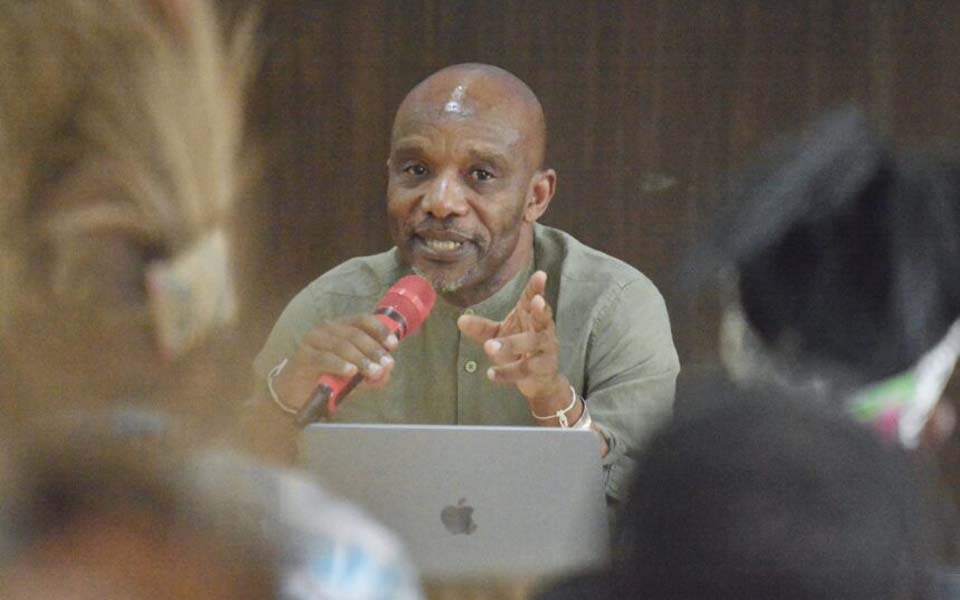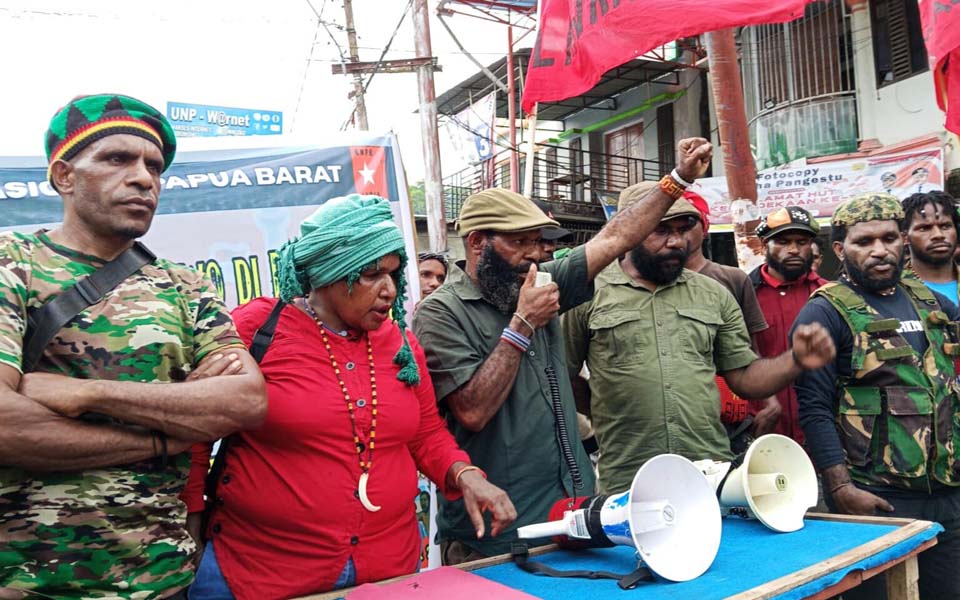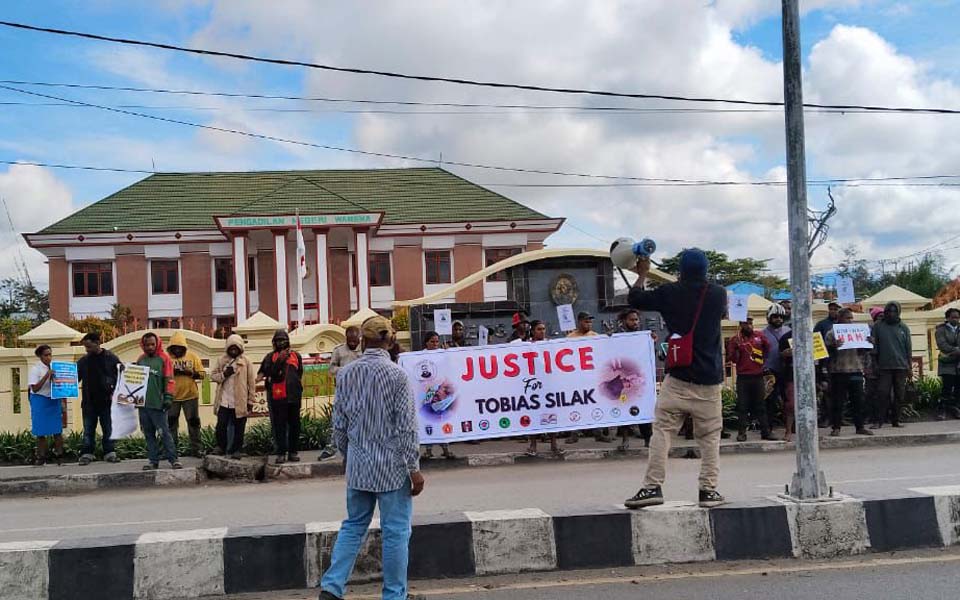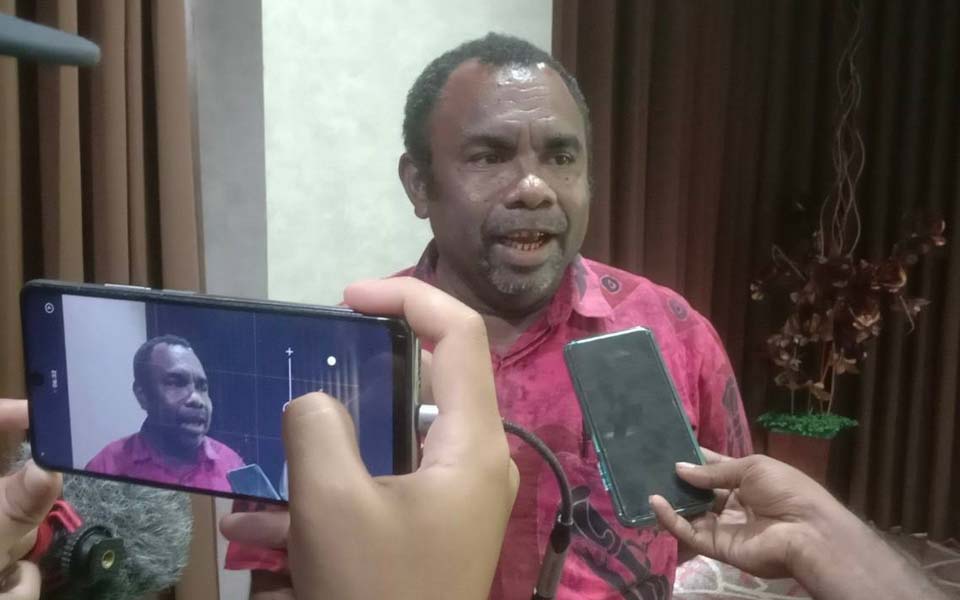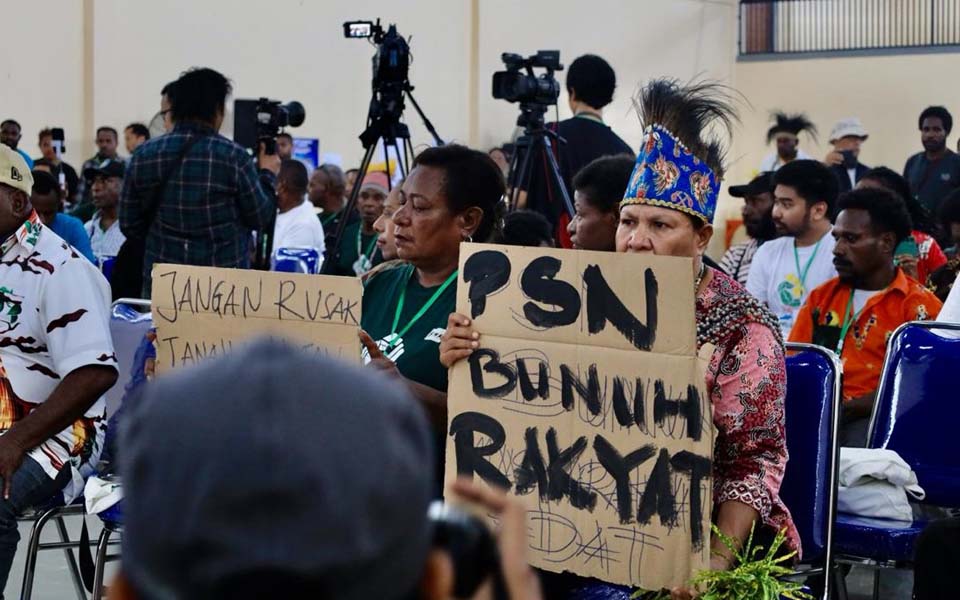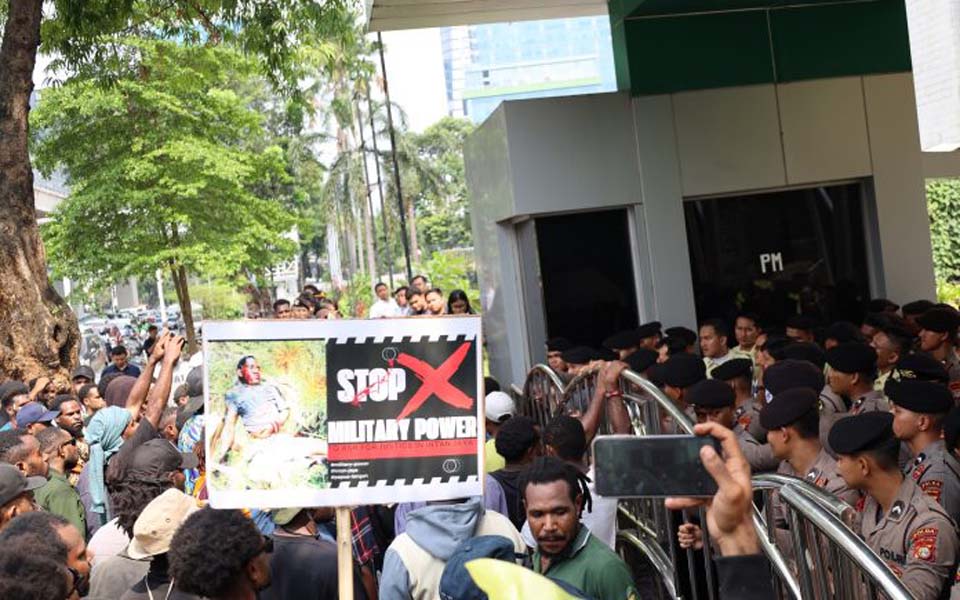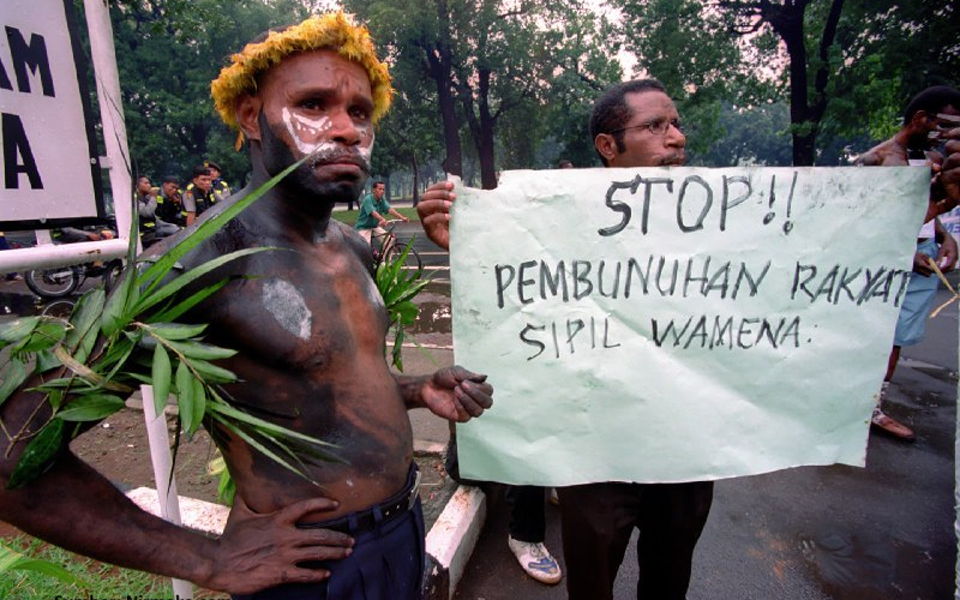Anggi Sagita, Jayapura – United Nations Special Rapporteur for the Rights of Indigenous Peoples, Albert Kwokwo Barume, personally heard the heartfelt cries of Papuan indigenous peoples (OAP) during an informal two-day visit to Jayapura, Papua Province on July 4-5.
Barume empathised with and recorded each statement and report submitted by representatives of indigenous peoples in the land of Papua. "I'm saddened too over what's happening here [in the land of Papua] because it is a violation of human rights or HAM", Barume said.
Barume listened carefully to what is being experienced, what is being felt from moment to moment by indigenous peoples in the land of Papua that was conveyed to him personally. He is of the view that all the cruelty by states against indigenous peoples everywhere should not happen.
Barume listened to and recorded each testimony. He stressed that hearing the victims was a direct mandate of his position. In addition to indigenous peoples, Barume also met with non-government organisations (NGOs), the government, the Papua People's Council (MRP) and the Papua Regional House of Representatives (DPRP).
"Indigenous Papuans should be treated equally and not suffer", said Barume who originates from the Democratic Republic of Congo.
Barume said that the task of a special UN rapporteur was to be an amplifier of the voices of indigenous peoples who are oppressed and treated arbitrarily by the state in all matters, especially in maintaining the right to life and their customary territories.
"My task is as an amplifier to strengthen and bring the voices of the fathers and mothers to be heard by the Indonesian government. I hope to be able to do more", said Barume who has been entrusted and given a mandate by the UN as a special rapporteur since December 2024.
In a statement presented to Barume, the Papuan Traditional Council (DAP) said it is of the view that there are no guarantees of comprehensive protection of the land and life of the Papuan nation within the framework of the Indonesian state.
"We emphasise the right to self-determination, as guaranteed under the ICCPR [International Covenant on Civil and Political Rights], the ICESCR [International Covenant on Economic, Social and Cultural Rights] and the UNDRIP [Declaration on the Rights of Indigenous Peoples] Articles 3-4", said the DAP in the statement conveyed to Barume.
"The process of integration [into Indonesia] through the 1969 Act of Choice which only involved 1,026 people under military coercion was never legitimate under international law. Without recognition of political rights, the threat of destruction will continue", said the DAP.
Responding to Barume's presence, the DAP respectfully asked that following his informal visit he could consider further steps relevant to the special rapporteur's mandate, namely submitting a request for an official visit to the land of Papua in the special procedure framework of the UN Human Rights Council.
They also asked for an official thematic report to be compiled that records the visit and the Indonesian government's response, issuing a public statement that emphasises the deep concerns over the pattern of violations of the rights of indigenous peoples and recommending the formation of an independent investigation mechanism if official access is rejected.
[Translated by James Balowski. The original title of the article was "Pelapor Khusus PBB: Orang Papua seharusnya diperlakukan setara dan tidak menderita".]





